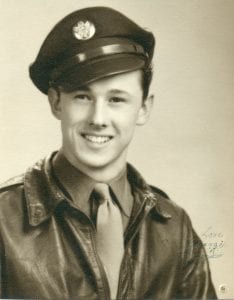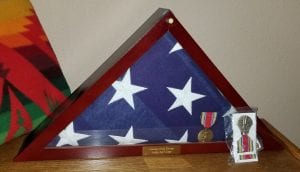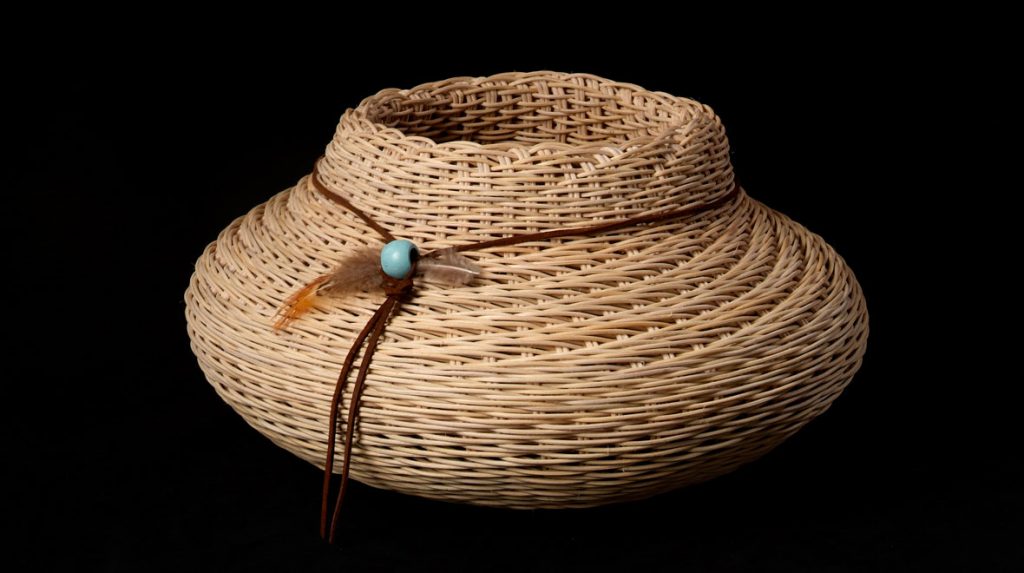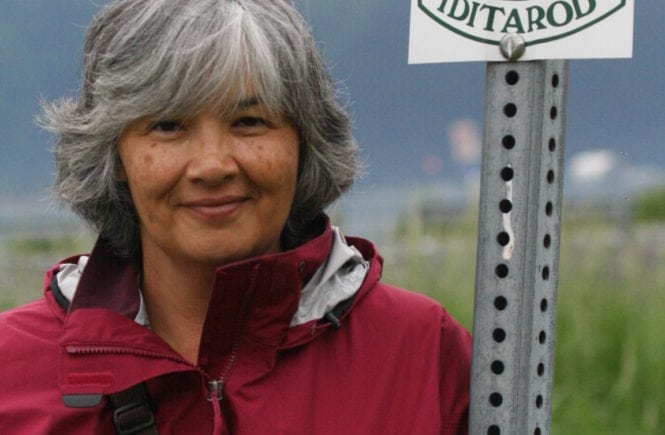 2019 would have been Dad’s 92nd birthday. He passed away when he was 74. It’s hard to believe it’s been 18 years since I last saw him
2019 would have been Dad’s 92nd birthday. He passed away when he was 74. It’s hard to believe it’s been 18 years since I last saw him
Anyone who has read my book, Bitterroot: A Salish Memoir of Transracial Adoption, knows that I write significantly about my adoptive father. I write about his abusive and harsh nature because that’s the “Dad” I experienced growing up. That person was the father I hated, and had lost respect for, and whose love and acceptance I craved and hated myself for doing so. Although my husband, Rick, observed Dad’s love for me, I couldn’t see it. Our years of father and daughter had been polluted by so many other painful events and words and memories that by the time I was raising my own family, I just saw darkness when I looked at him.
However, one morning in 2013, when I was on the Flathead Indian Reservation for the month of June writing Bitterroot, I was required to go deeper in my assessment of him. “Why do you think your dad was the way he was?” my friend Evelyn–who was two decades my senior–asked. She stirred her coffee as I contemplated her question. To be honest, I hadn’t really considered my dad beyond the rocky and tenuous relationship I had with him. Evelyn, the tribal lawyer, and I spoke at length, with her prodding me with questions that forced me to look at him from afar. And as I did so, my feelings of hurt and anger and frustration begin to float away from me. This new water I was in, as salty as it was and as much as it caused discomfort to my wounds, would eventually buoy me, allowing me to not only understand the man he was, but also the man he’d hoped to be. And I was able, then, to let him own those feelings without my needing to feel they were my burden to carry. I began to understand that so many things are not about “us”, but about the person who has not processed destructive life experiences in the healthiest of ways. We are just bystanders in their cyclone.
***
Dad was born on May 2,1927, a date I remember because his parents’ wedding anniversary was on May 1. As a consequence, I thought it was funny date. He grew up in Cleveland, Ohio, an ethnically divided, segregated city. Dad would describe the neighborhoods whose invisible boundaries were marked by food markets, and cloth, arts and culture. Each unique neighborhood recognized “outsiders” as just that: outsiders. When I was young Dad recalled the German, Italian, Jewish and Slovak neighborhoods among so many others, telling stories of the people who minded the Jewish delis, the German meat counters. His descriptions allowed me to inhale the odors of fresh Italian pastas, the Czechoslovakian bakeries and the Chinese noodle houses. Although he was an outsider, his curiosity about other people led him deep into these spaces where he watched and learned all the ways people lived their lives. But outsiders were labeled by ethnic slurs, words that were designed to keep the neighborhoods from blending as well as provide a framework of status: U.S. born, immigrants or greenhorns, cultured people from the West, slovenly people from the Mediterranean. Everyone was placed somewhere in the hierarchy. Dad spoke these words so easily that by the time I was five I knew which groups the slurs described. But I didn’t use them because I also knew they were created to shame and hurt.
The Devan family roots were deep in the Slovak part of Czechoslovakia. Grandma was second generation American, her parents having immigrated nearly a generation before; Grandpa arrived on Canadian soil when he was fourteen, along with his parents and various aunts and uncles. I’m not sure how my grandparents met, but they married and made their way to Cleveland to be part of a much larger Slovakian neighborhood. There they found a supportive network that helped them get settled, found Grandpa a job and with whom they could communicate in Slovak, their first language. While Grandma stayed home, baking extravagant goods and keeping a spotless house, Grandpa became a butcher which, during the 1930s,provided a comfortable middle-class life for his family. Everyone needed meat. They had two sons: Dad and his brother, Bill, older by four years. I don’t know what they were like as kids, but as adults there was only a thread of a relationship between them. Dad never spoke of him in the present tense as I was growing up.
***
I was twenty-five when I first ever met my uncle. Rick and I had taken off work for one month on a road trip to “see America,” stopping in Medina, Ohio to visit my grandmother at her nursing home. My mom’s hasty divorce from Grandma’s youngest son ensured that we were resigned to the margins; she stopped answering my letters seven years before. Upon entering her room, I saw a shadow of the woman Grandma had been only ten years before. She’d lost a lot of weight, and seemed to be bed-ridden. However, her white hair and piercing black eyes were the same. Memories: she smelled of roses; intricately embroidered white linen with crocheted edging sat on top of just about every surface in her house, the dining room table, her night stands, a swath hanging artfully over the edge of a shelf; small porcelain knickknacks lined up on dust-free shelves; and Grandma and Grandpa switching from English to Slovak when they wanted to talk about my family. I knew the subject because of the side-long glances they’d throw at me.
Mom liked to tell me the story of the first time my grandparents had come to Montana to see me, a year after my parents had adopted me. Upon arrival Grandma strongly informed Mom that I was not to call her Grandma, because I was not George’s ‘real’ daughter. Mom must have relayed that message, because when I came to the kitchen the next morning I asked where “that lady” was. Mom laughed, saying the next thing she heard was Grandma in the living room, telling me very quietly that while she was at my house, I could call her Grandma. “She hated being ‘that lady’,” Mom said with a chuckle.
***
“Hi Grandma. It’s me, Susan.”
“I don’t know you.”
“I’m George’s daughter.”
“I don’t know any George.”
“Your son?”
“I don’t have a son named George. And I don’t know you.”
My heart stopped. How could she not remember me? Or her youngest son? “Why don’t you call your uncle?” Rick suggested. I winced at his advice. I’d never met, nor corresponded with his older brother. I spoke to him once on the phone, where his only words were, “Is George there?” No ‘hi’, no ‘good to hear your voice.’ Nothing. “We’re here,” Rick nudged. “He might be interested in meeting you.” He handed me the phone book and after a few moments I ran my index finger over the “D’s” until I came to his name, then, with heart pounding, I dialed his number from the nursing home. After introducing myself and letting him know we were in Medina at Grandma’s nursing home, I was surprised at the happiness in his voice as he offered to immediately come over and introduce me properly to Grandma. “She has so many moments of confusion,” he explained. When he entered the nursing home I was astounded at how much he looked like Dad, with the same same teeth that became visible in the same smile, the same Asiatic eyes, remnants of the Mongol invasion, and the same long slender face. The resemblance took me completely by surprise.
We followed Bill into the room and I was skeptical of Grandma’s ‘confusion’. At his introduction she insisted she knew all along that I was George’s daughter. Of course, she’d recognize me anywhere. She smiled at me, but the smile made me wary. No, I don’t think she had any problem with recognition; but that was a game she liked to play, according to Mom’s stories.
***
I was five when I next saw my grandparents. I’d recently seen the movie Heidi, about a girl in Switzerland who was raised by her grandfather, a kindly man. She called him “Papa” and I was so mesmerized by the sound of that word, its soft ‘p’s, it’s gentleness as it left my tongue. I asked Dad if I could call him Papa, and he immediately told me no; it sounded too ‘ethnic’. When I saw my grandfather a few weeks later, I asked him if I could call him “Papa”. He smiled and hugged me and thought that sounded wonderful. He was always Papa to me, the man with a gentle smile, a slight accent, the questions and the careful nods at my responses.
However, when I was eight or nine, Mom and Dad told me other stories, the ones that I would never hear from Papa, or Grandma either. Of Grandma pitting her sons against one another; my dad was four years younger than his brother. She would challenge them to race one another, a spelling contest, a trivia question. Being four years younger, Dad was never going to win any of those games. I imagine that is when he began to feel he couldn’t live up to expectations. Plus, the man I knew had a lot of energy, hiking for twenty miles at a time over rough terrain while hunting. I’m sure he was an active boy who fought against any kind of constrictive framework on his life. As a result, I’m sure he was always in some sort of trouble, irritating people with his constant movement, his questions, his teasing. But instead of dealing with whatever infraction had occurred Grandma would warn Dad to wait until his father got home and then “he’d get it.” So he would wait the many hours between the event and when his dad, a man who spent long hours on his feet, came in through the door Dad readied himself for the belt. “He never asked if I did what Mom said I did, he just began the discipline.” Dad told me this story when he was in his 40s and I remember the angry confusion in his voice.
When I was in junior high, Dad told me about his interest in joining the fight in World War II. He wanted to go there with so many of the other boys to help protect the world from fascism. Where they’d been 18, he was 17 and lied about his age to join the war. Once accepted, Dad was shipped to the Philippines in the Pacific Theater. What I knew about his experience was what I’d gathered from his photo album of that time, a book I would look through nearly every day when I was young In those photos he was happy. Here was one where he stood in swim trunks, his body long, lean and fit, his youthful face pulled into a smile. Here was one where he sat with a small monkey on his shoulder, the men around him laughing while palm trees stood in the background and white sand lay in the foreground. In my teens, I asked him a few times what his time in the war was like; he refused to talk about it, and his face would turn hard and his gaze traveled far beyond where we stood, to another place, another time. That wasn’t the reaction I expected from the happy version of those photos.
Mom told me what Dad couldn’t, he’d watched his best friend get shot in the head, standing just a few feet away. That was my first clue that the palm trees and the sand held far darker secrets.
***
 Dad passed away in 2002, and his wife, Norma passed away in 2017. Her son dropped a few items by my house on his way back from the funeral, one of which was the tri-folded flag that was given to her by the U.S. Army at Dad’s funeral. Two medals gleamed out from within the framework, laid carefully on the flag that was protected by glass. I’d never seen them before; I didn’t even know he had medals. Rick wrote to the Army to get background on what the medals were; when they responded, I got the rest of the story. Joining the army at seventeen, Dad had become a medic in one of the most horrific battlefields that existed at the time. He saw the worst outcomes of war, gathering and carrying ravaged, dismembered soldiers who existed on the edge of consciousness, or who had died in all the brutal ways soldiers die in war. Daily, he worked with shredded bodies and shredded minds, achieving the rank of Sergeant within eighteen months. The medals were for his service in World War II.
Dad passed away in 2002, and his wife, Norma passed away in 2017. Her son dropped a few items by my house on his way back from the funeral, one of which was the tri-folded flag that was given to her by the U.S. Army at Dad’s funeral. Two medals gleamed out from within the framework, laid carefully on the flag that was protected by glass. I’d never seen them before; I didn’t even know he had medals. Rick wrote to the Army to get background on what the medals were; when they responded, I got the rest of the story. Joining the army at seventeen, Dad had become a medic in one of the most horrific battlefields that existed at the time. He saw the worst outcomes of war, gathering and carrying ravaged, dismembered soldiers who existed on the edge of consciousness, or who had died in all the brutal ways soldiers die in war. Daily, he worked with shredded bodies and shredded minds, achieving the rank of Sergeant within eighteen months. The medals were for his service in World War II.
***
The photo of him in his service uniform is signed “with love,” a note to my Mom, whom Dad had met when he’d been part of the Youth Civil Air Patrol, their drills taking place near the Willoughby golf course where Mom worked as a waitress. She had been 15, he was 16. When he returned from the War, they got married, then moved out west where he used the G.I. bill to obtain a degree in wildlife from what is now the University of Montana. He got experience by taking summer jobs in Alaska, and after graduating he was a biologist for the Desert Game Range in Nevada. By the time they adopted me he was an assistant refuge manager at Red Rock Lakes National Wildlife Refuge, about forty miles outside of Yellowstone in the southwestern part of Montana. That experience defined his career because of the pride he had in his work: bringing the Trumpeter swan back from the brink of extinction. Prior to the 1960s, the population of Trumpeter swans south of the Canada border numbered less than 100. Currently there over over 27,000 throughout North America. Dad had come up with the idea that they could incubate a lot of eggs, hatch them into chicks and transfer these chicks to grow up on and released from the Lacreek National Wildlife Refuge in South Dakota. I remember seeing the huge incubators with shelves and shelves of eggs, and fuzzy chicks, so I took what he did for granted. When I was older one of his long time friends told me Dad had been described by people in the regional office as being “one of the best damn biologists in the service.”
But more telling of the gentle nature he’d keep hidden was the fact that he was a craftsman and artist, working in photography, watercolors and oils, leather and wood, and eventually building a seeming Zen garden in his backyard, a place where quiet meditation took place each morning over a cup of coffee and a tobacco pipe. After he passed away I was going through his belongings and found his leather working tools, awls and stamps and carvers, as well as wallets and purses he’d made with beautiful scrolled and stamped designs. They images were so sharp and intricate that, like a mandala, they pulled my gaze to roam over the entire surface. Dad loved working with wood, carving ducks, and making furniture for our house as well as for my doll. He lathed wood bowls and spindles, but once we moved to the Washington coast, he loved to collect small pieces of driftwood and building scenes on burlap: cattails near a swimming duck, or a beach scene complete with shells, shorebirds and detritus. He’d wax the pieces to a high sheen, evoking images that he called forth from the washed up wood. He was truly an artist. And as I think back on those years of his life when he worked most creatively, I see him as a person to sought to build or fix so many things. He just wasn’t able to fix himself.
***
Dad carried so many scars from his family, his neighborhoods, school, the war, the latter which conjured all the fear and anger of a young man sent into bloody brutality before he was even tried by life. Trying to make peace with himself and the experience, he and his wife, Norma, traveled to Japan in the early 1990s, as part of the Friendship Force Tour. When he returned to the U.S. he didn’t talk much about it, but it seemed to have allowed him to have atoned for the brutality he took part in and the brutality he experienced, allowing him to let his anger grief and guilt fade into the past.
But Dad always had an edge, a sharpness that came through so much of our time together, We couldn’t be in the same house for more than three days without arguing, my hands shaking with fury on the mornings I left. It made visiting difficult. He always did better at our house. Fewer memories, perhaps. But I needed to heal in order to see Dad in his entirety, when I could finally look at him with non-judgmental eyes and see him in context. TEDxMileHigh speaker, Theo Wilson, spoke the truth: “Hurt people hurt people.”
***
A few years ago I considered the term “historical trauma,” a behavioral theory that I’ve seen mainly applied American Indians to describe the events over many generations that were designed to fracture and fragment cultures and people. Historical Trauma provides a framework of understanding the scars on the minds and souls of people who have experienced a barrage of violence over many generations. What becomes visible are the social, familial and individual dysfunctions that are poor coping methods: alcoholism, domestic violence, child endangerment, and abuse. The important aspect of this theory is that moved the “cause” of dysfunction from genetic flaws to social fragmentation, fracturing communities and people at their weakest points.
When I stepped back and reconsidered my father, his past and his family’s past through this historical trauma lens, I had an aha-moment. Slovakia is a country in Eastern Europe, a region that is a historic no-man’s-land between Russia and the West. It and the other Eastern European neighbors were run over and ravaged over centuries and generations, as wars of power, of princedoms of nations raged across nebulous boundaries. Generations of men, women and children were killed, and families, homes, towns and lifeways were fractured and destroyed. Nations were built, raced, defined and redefined, ruled and destroyed and their inhabitants merely fodder in their destruction.
This destruction over centuries creates dysfunction on all levels, the most foundational being within a family. When lives are constantly under threat, the focus becomes survival and it brings out the basest of our instincts. From this perspective, I began to understand my dad, the boy who grew up in a culturally dysfunctional family and community where love was hidden because it hinders survival. Volunteering for the war effort, with bright eyes and high moral values, then witnessing brutal deaths and destruction, the dehumanization and decay of people, left his soul in shreds. After reading Bitterroot, some have described my dad as merely “an alcoholic child abuser.” On the surface, that is what it seems. However, being forced to excavate deeper, one sees the frailness and fracture of a human being in an environment meant to destroy him, a man who survived and attempted to make the world a better place, as flawed as that effort was.
And that is a great explanation, except I keep asking myself what happens to a culture when we send young men, and women, off to a war that destroys their humanity. A war where their fellow soldiers, their friends, are churned into bits and pieces of protein and plasma, and where the medics they are required to care for the parts that are left on a daily basis, knowing lives have changed, lives have ended. And that is the new normal. How then, when they return home, can we expect them to be good partners, husbands, wives, good fathers and mothers?
No, I’m no longer confused by his actions and reactions that were put into place to allay fear, frustration and anger at the deepest levels of his brain. Having a wife, a child, for whom he felt overwhelming responsibility, and his ascension to the higher GS levels invited those ghosts of inferiority and fed them, leaving Dad with wonder, worry, and doubt that he was good enough, kind enough, acceptable enough, but also afraid that the man he’d hoped to become was dissolving before his eyes.
My view of Dad has changed. Perhaps because of excavation into his past, into my past, into the pasts of so many humans. Or perhaps its because of my age, or my empathy. Or maybe it’s all of these mixed together that allow me to forgive him, to see his frail humanity. Dad taught me a lot of hard lessons; but he taught me lessons of beauty as well. Yes, as I think about him here, and if I present the more balanced story of him, he was much more than that distilled description of an “alcoholic child abuser.”
He was a man whose harsh life experiences drilled into his nature and created fault lines in his soul, which cracked under pressure. The fissures affected all of us.



